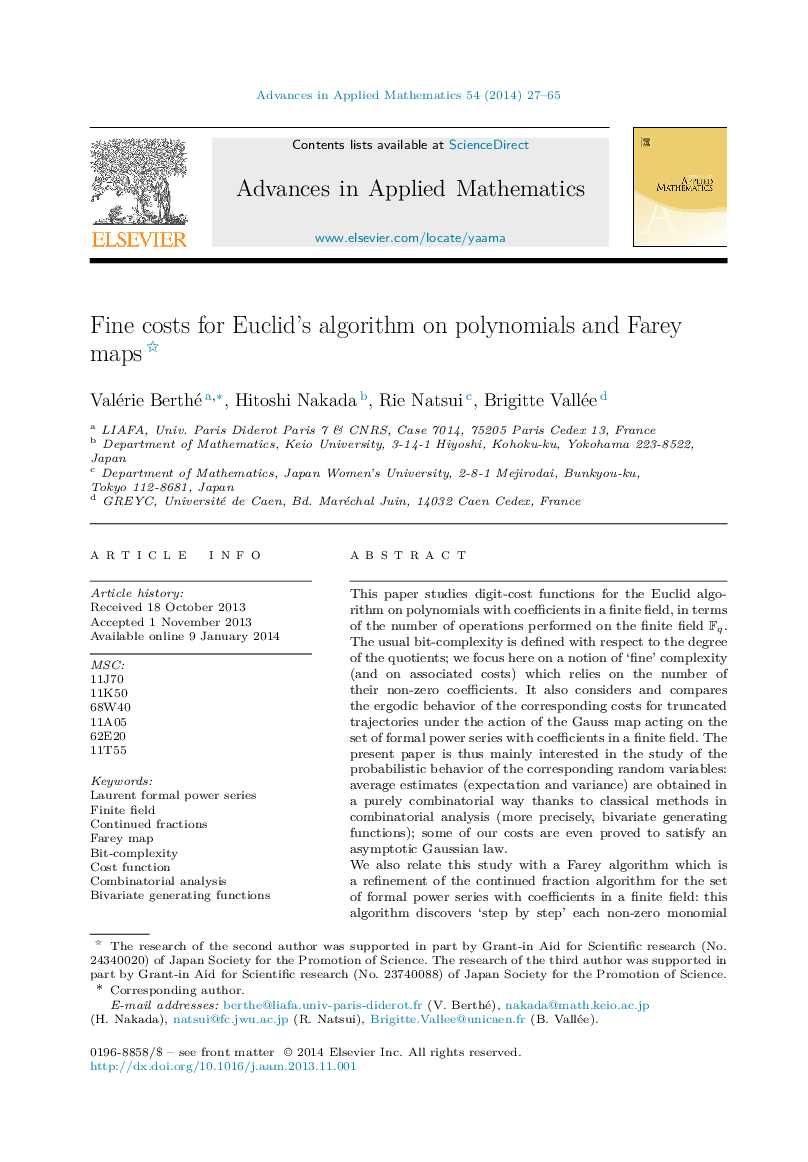| Article ID | Journal | Published Year | Pages | File Type |
|---|---|---|---|---|
| 4624751 | Advances in Applied Mathematics | 2014 | 39 Pages |
This paper studies digit-cost functions for the Euclid algorithm on polynomials with coefficients in a finite field, in terms of the number of operations performed on the finite field FqFq. The usual bit-complexity is defined with respect to the degree of the quotients; we focus here on a notion of ‘fine’ complexity (and on associated costs) which relies on the number of their non-zero coefficients. It also considers and compares the ergodic behavior of the corresponding costs for truncated trajectories under the action of the Gauss map acting on the set of formal power series with coefficients in a finite field. The present paper is thus mainly interested in the study of the probabilistic behavior of the corresponding random variables: average estimates (expectation and variance) are obtained in a purely combinatorial way thanks to classical methods in combinatorial analysis (more precisely, bivariate generating functions); some of our costs are even proved to satisfy an asymptotic Gaussian law.We also relate this study with a Farey algorithm which is a refinement of the continued fraction algorithm for the set of formal power series with coefficients in a finite field: this algorithm discovers ‘step by step’ each non-zero monomial of the quotient, so its number of steps is closely related to the number of non-zero coefficients. In particular, this map is shown to admit a finite invariant measure in contrast with the real case. This version of the Farey map also produces mediant convergents in the continued fraction expansion of formal power series with coefficients in a finite field.
